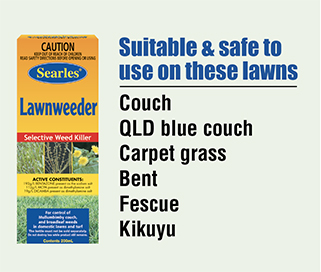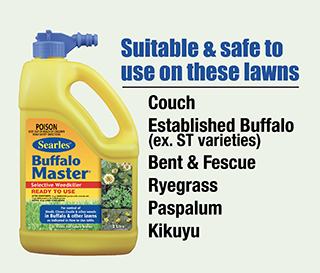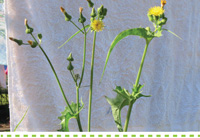What does Sowthistle look like and how to control it?
Sowthistle is also known by other common names such as “common milk Sowthistle”, “milk thistle” and “milkweed”. It is commonly found in wasteland and neglected garden areas.
Recognising sowthistle weed
Sowthistle can grow at any time of the year where sufficient rainfall can assist in germination of the seed and can be recognised by its tall, erect stems where the hollow stemmed and toothed leaves are produced directly from the trunk. A white milky sap is released upon tearing the leaf or breaking the stem that can be an irritant to the skin and eyes. Small tightly packed yellow or cream aster–like flowers are formed in summer followed by thousands of seed heads that are dispersed by wind and rain to once again begin the lifecycle. Many breeders of small cage birds such as finches, canaries and small parrots often help to spread this weed species by feeding the flower and seed heads to captive birds as an extra nutrition source and then (unwittingly) dispersing the uneaten heads into the garden for further spread.
How to control sowthistle in lawns and gardens
Seeds of Sowthistle can persist and stay “active” for up to one year on the surface of the soil. Alternating the use of selective herbicides, along with a spreading or wetting agent (Searles Spredmax) will help to control outbreaks and enable herbicides to stick to the leaves, but Sowthistle has the ability to build a resistance to the same herbicide being used, so change product on each application. Applications should be done prior to the plants forming flower heads. Physical removal can often be seen as a slightly more strategic option, but the removal of the deep taproot is essential.
CONTROL SOWTHISTLE WITH
 
Click to view our Searles Lawn Weed Control Chart for the right lawn weed killer to use for your lawn type.
 |